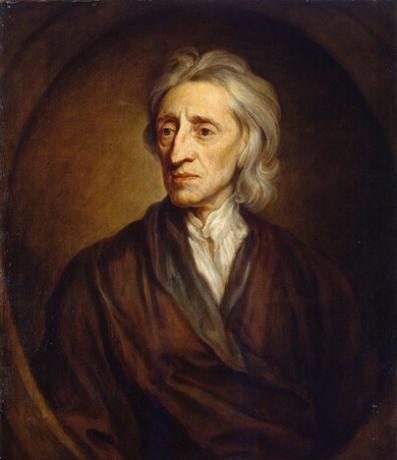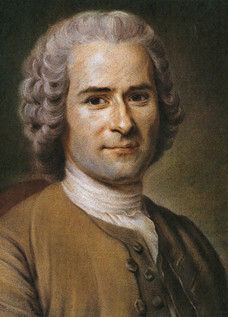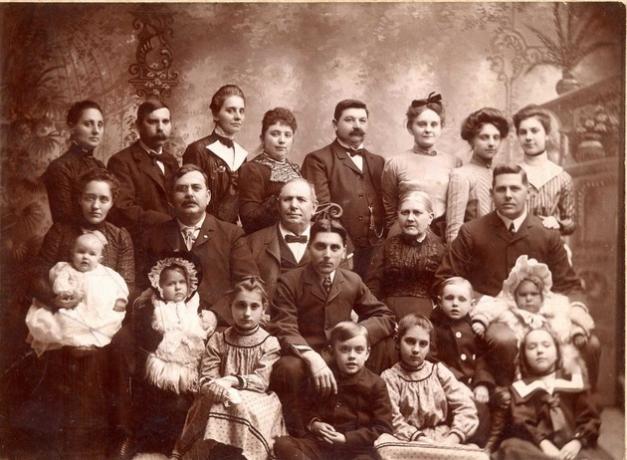O contractualism it's a theory politics and philosophical based on the idea that there is a kind of pact or social contract that removes human beings from their state of nature and puts you in coexistence with other human beings in society. The English Thomas Hobbes and John Locke, and the Swiss Jean-Jacques Rousseau were contractualist philosophers.
See too: Utilitarianism: ethical doctrine founded in England
Contractualism and natural law
the idea of a contractSocial assumes that society is established in mutual agreement so that a certain end is reached. The social contract is the moment when the human being stops living as a natural being and starts to live as a being that stands out from nature, creating its own laws, its moral, customs and a set of institutions so that coexistence is more harmonious.
According to contractual philosophers, there is a period of humanity, which is the pre-social period, in which the human being finds himself in his state of nature. O state of nature it is the period in which society has not yet formed, when there is no civil law and, therefore, a civilization to support social interaction. this state is
governed by a law of nature which places human beings in full equality of rights. We call this set of natural rights and the theory of the state of nature the jusnaturalism.The great problem of the state of nature is that the equality of rights generates conflicts, and for coexistence to be more peaceful among the people, it is necessary to institute a set of civil laws that solves all the possible conflicts that can arise in it. The state formed after the natural state is called civil society or civil state.
Do not stop now... There's more after the advertising ;)
Who created contractualism?
The coexistence of human beings in a civil state has accompanied humanity since the development of the most ancient civilizations. It is not possible to determine when, exactly, the human being stopped living in his state of nature and assumed a civil pact for himself.
Contractual philosophers even treat the state of nature as a hypothetical and didactically developed moment to explain the emergence of society. Contractualist theory, in turn, was first described in England, in the 17th century, by philosopher and political theorist Thomas Hobbes.
Read too:Social inequality: societal ailment theoretically avoided by contractualism
Contractual thinkers
We have as the main modern contractualists the philosophers Thomas Hobbes, John Locke and Jean-Jacques Rousseau. Each thinker presents his idea of social contract, pointing many differentconceptions of state of nature and different reasons for humanity to adhere to the social pact.
Thomas Hobbes
The English philosopher and political theorist was a monarchistconvinced. In defense of the monarchy at a time of political crisis in England, he published his best-known book:Leviathan, or Matter, form and power in an ecclesiastical and civil state. The word leviathan designates a sea creature from the ancient imagination (also described in passages of the Old Testament) that would be a gigantic monster protecting fish and smaller marine animals. This has to do with the way Hobbes conceived of society and the state: a gigantic, violent monster that existed to protect its citizens.

The concept of State, for Hobbes, is based on the idea that there must be a strongconcentration of state power in order to make the coexistence bearable. This would be necessary because the human being in his state of nature was, according to Hobbes, violent and cruel, the natural human being a kind of wolf of man himself.
Human beings' impulses of violence in their natural state led them to a difficult coexistence governed by fear, distrust and chaos. The State would be the necessary creation to control this chaotic way of life through the strength and concentration of violence.
A curiosity about the book Leviathan is that it was written and published in English, unlike the works of intellectuals of the time, which were published in Latin. Hobbes' intention, in publishing his writing in defense of the monarchical state in a language of greater access to the population of England, was achieve a greater reach, so that more people could read and, consequently, accept the monarchy that was in crisis in the century XVII. To learn more about this contractualist philosopher of English origin, visit: Thomas Hobbes.
John Locke

The English philosopher and political theorist John Locke, unlike Hobbes, was against the monarchy. Locke was a supporter of parliamentarism, the form of government adopted in England in the late 17th century, and is also considered the “father” of political liberalism and one of the “ancestors” of economic liberalism.
The state of nature, according to Locke, was a period of full equality between all people. All were governed by natural law, which guaranteed possession of any natural property, including the same property, without restrictions. This natural law of unrestricted equality created, according to the thinker, problems when people wanted the same possession. The solution he defended was the institution of a marital status, with laws and social norms that would regulate tenure and prevent conflicts.
Civil society and the social pact would, therefore, be necessary to regulate the ownership of assets, and the The state was an institution that should obey certain limits, especially when it comes to the property. For Locke, the State shouldn't have extreme strength, as Hobbes thought, and should act within the limits of the right to property. To delve deeper into this philosopher's ideas, go to: John Locke.
Jean-Jacques Rousseau
The Swiss thinker is a kind of contractualist critical of contractualism. For Rousseau, it was in the state of nature that human beings found themselves completely free from any institutional ties that would deprive them of their natural freedom. Human beings were amoral in their state of nature. Unaware of morality, he would also be ignorant of evil. Evil only started to be intentionally practiced when the human being discovered at once what was right and what was wrong, or what was good and evil.

For Rousseau, the civil state had been created illegitimately, so that civil society based on private property was a means of human corruption. The Swiss thinker advocated a reformulation of society, so that the general wish was granted in a government that really wanted to establish the social good and not simply attend to the privileges of a ruling class. In order to learn more about his ideas, go to: Rousseau and the social contract.
Hegel and the criticism of contractualism
The German philosopher Georg Wilhelm Friedrich Hegel was extremely contrary to contract theory. For him, what contractualism understood as a general will was a mere contractual element, agreed upon by citizens. How Hegel is based on a conceptionidealistic, what he understood by general will was a pure concept that should be maintained as existing in a rational instance, above any element of agreement or contract. In this sense, the general will perceived by contractualists was not the general will itself, but just an element that would have emerged based on an agreement.
by Francisco Porfirio
Sociology Professor



